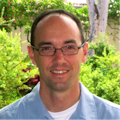
SCOPE-ALOHA Project: Microorganism Control of Organic Matter Production and Degradation
In the open sea, resources supporting the energetic and nutritional demands of organisms are persistently in short supply, and input of these resources to ocean ecosystems is a function of complex biological-physical feedbacks. Competition for such limiting resources has been a major factor shaping extant microbial diversity. In the well-lit waters of the upper ocean, biological harvesting of sunlight fuels synthesis of organic matter with concomitant consumption of nutrients. However, the vertical transition from the well-lit euphotic zone to the dimly-lit waters of the ocean’s interior represents a major energetic threshold, and is accompanied by sharp biogeochemical and microbiological gradients. In these waters, microorganisms derive energy from oxidization of diverse chemical substrates. Compared to the relatively easily sampled and well-studied upper ocean, we have considerably less information on the microbial oceanography of the deep sea. It remains unclear how variability in the supply, form (e.g. dissolved and particulate phases), and composition (e.g. elemental and molecular) of organic matter influences contemporaneous microbial diversity, and conversely how changes in microorganism diversity influences organic matter turnover.
Through a combination of experimental approaches and in situ ocean measurements, this collaborative project will evaluate temporal and spatial coupling in organic matter production and its consumption by microorganisms. The work will focus on quantifying rates of organic matter degradation in the dimly-lit waters of the ocean’s interior, and identifying the microorganisms that catalyze the various steps of decomposition. Moreover, through collaborative efforts, the project will elucidate feedbacks between processes occurring in the upper ocean (e.g. photosynthesis, nitrogen fixation) and vertical and temporal variability in microbial metabolism and diversity in the deep sea.
Bio:
Matthew Church is an Associate Professor at the University of Montana’s Flathead Lake Biological Station. He received his B.S. degree from The Evergreen State College and his Ph.D. from The College of William and Mary’s School of Marine Science. Church’s primary research interests focus on linking microbial ecology to biogeochemistry. He is particularly interested in factors regulating spatiotemporal variability in ocean biogeochemistry, with particular emphasis on deciphering the microorganisms catalyzing specific aspects of the nitrogen cycle. In 2015 he was awarded the Yentch-Schindler Early Career Award from the Association for the Sciences of Limnology and Oceanography.